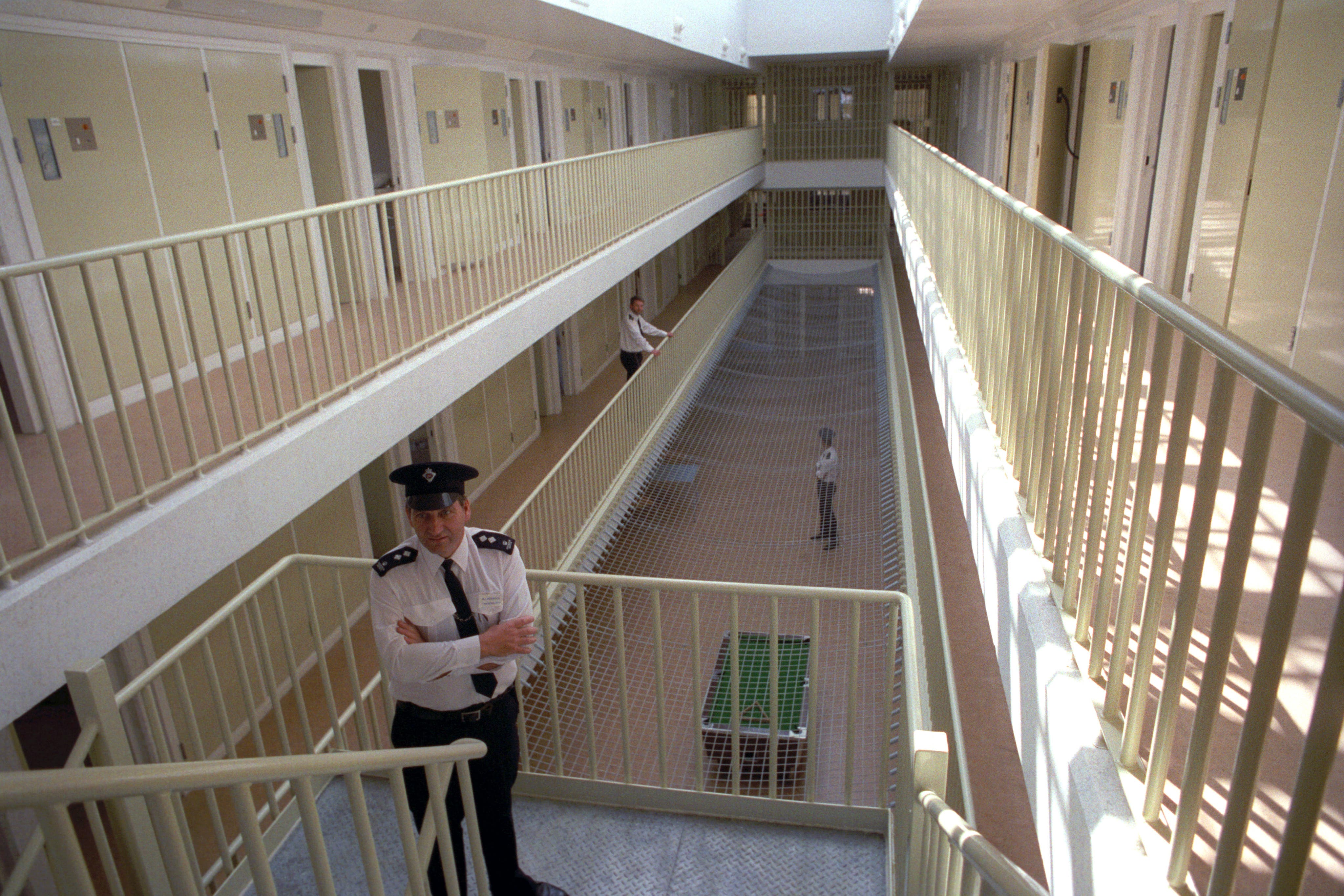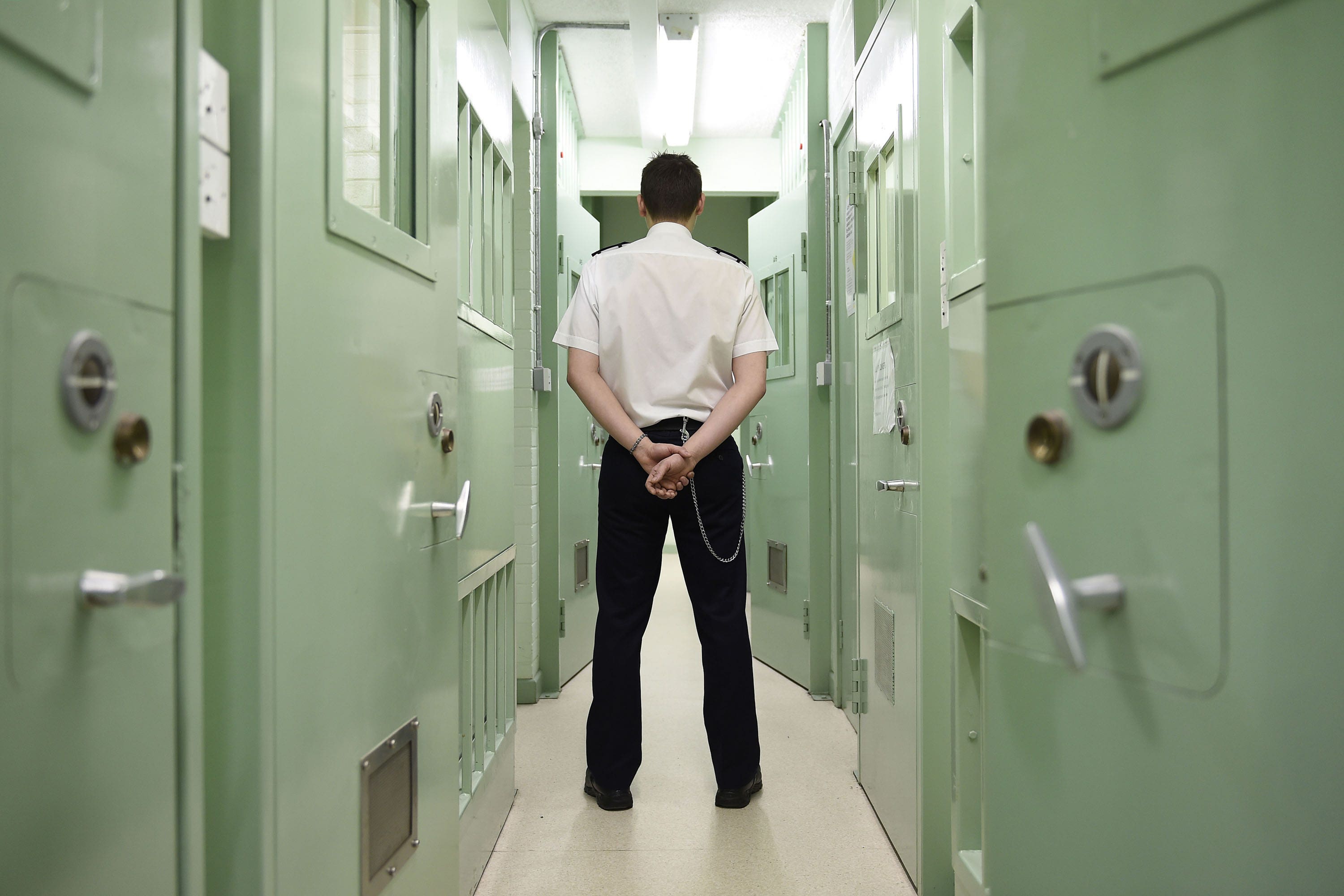Suicide and violence in prisons rise by nearly 25%, as self-harm hits all-time high among women prisoners
‘Incredibly concerning’ figures symptomatic of ‘enormous strain’ on prisons, chief inspector tells The Independent

Suicide and serious violence have risen by nearly a quarter in men’s prisons in England and Wales, with self-harm skyrocketing to an all-time high in the women’s estate, as the government scrambles to ease the strain on jails overcrowded to breaking point.
Ninety-one male inmates died by suicide in the 12 months to September – a rise of 24 per cent on the previous year, and the worst toll since 111 people died in 2016, a record high year which prompted the government to launch an internal inquiry.
The rate of serious prisoner-on-prisoner assaults also soared by 23 per cent, official figures show, with nearly 2,000 such violent incidents in the year to June, and a further 748 serious attacks on prison staff.
And in women’s prisons, the number of self-harm incidents rose by an alarming 63 per cent to a grim new record of 20,248, up from 6,262 a decade earlier, while assaults on staff also hit an all-time high of 220 in the second quarter of this year – six times as many as during the same period in 2013.
“That, to me, feels like a system that is under enormous strain,” Charlie Taylor, HM chief inspector of prisons, told The Independent. “Those are metrics that go up when the pressure goes up.”
With just a few hundred spare prison places left, and many jails already running way over capacity with inmates forced to double up cells, justice secretary Alex Chalk has started releasing prisoners early and has announced plans to spare more low-level offenders jail in order to free up space.
Andrew Neilson, of the Howard League for Penal Reform said the statistics published on Thursday revealed “how pressure on people living and working in our overcrowded and under-resourced prison system has been allowed to build and build”, adding: “The need for a change of direction is clear.”
Overcrowding and staffing issues – including an exodus of experienced prison officers – have seen inmates stuck in their cells for 23 hours a day, forced to choose between showering, calling loved ones, or accessing education and rehabilitation schemes.
Calling the increase in self-inflicted deaths “incredibly concerning”, Mr Taylor noted that some prisons which have suffered the most suicides, such as HMP Leeds, are also the most overcrowded.

“Where a prison is really struggling generally, the risk of suicide just becomes higher generally because staff aren’t able to look after people properly, they’re not given the attention they need, and it’s easier to miss things. People are in despair and being locked in their cells for long periods of time.”
Understaffing means “prisons don’t have time to assess new people coming in” for certain suicide risk factors, Mr Taylor warned, adding: “If those red flags aren’t being picked up early on then the danger is that tragically people will be taking their own life, and we’ve seen it in prisons we’ve been really concerned about.”
Also highlighting the “really worrying” rise in serious assaults, the chief inspector said: “As soon as a prison starts feeling unsafe, it just has a corrosive effect on everybody who’s working in that environment.”
“Everybody is feeling more anxious, they’re more likely to get the retaliation in first, less likely to want to go out into education, you’ll get more people self-isolating, and prison officers feel less safe if they’re having to break up fights,” Mr Taylor added.
The increase in self-harm incidents in women’s prisons – described by the chief inspector as “just absolutely staggering” – comes despite the number of women self-harming remaining relatively stable in recent years.

Prison is “usually [used as] a place of safety, we are the lender of last resort in a lot of cases,” Carl Davies of the Prison Governors Association told The Independent, adding “there are alternatives to custody that could be better used to support” many of these women.
“If there was better social care, mental health provision, housing provision, drug and alcohol services in the community, prisons would not have as many women in them.”
Citing difficulties securing hospital access for prisoners, Mr Taylor said the rise in self-harm could also reflect issues with understaffing and a lack of suitable training. “These are often the most vulnerable, very unwell women, some of whom should quite frankly be in secure hospital, not in prison,” he said.
“There is a group of women who are absolutely trapped in a cycle of mental health difficulties, substance issues, homelessness, crime and prison, to the extent that for many of them prison is a revolving door and sometimes it provides some stability that they just don’t have elsewhere in their life,” Mr Taylor said.
Recalling a vist to HMP Styal in Cheshire, he said: “Women there, when they left the prison, were not bothering to take their property with them, they were leaving it for the prison to look after for them, because they knew they were going to be back. And the prison was the most stable place in their life.
“I think that’s an incredibly depressing indictment on all of us.”
A Ministry of Justice spokesperson said: “The safety of all staff and prisoners is our priority, which is why we ensure the most vulnerable prisoners have access to the round-the-clock care and mental health services.
“We are working tirelessly to ensure our hardworking staff are protected through our £100m security investment, X-ray body scanners specialist prison dogs and body-worn cameras.”
On self-harm in women’s prisons, they added: “High rates of self-harm incidents overall are, unfortunately, driven by a small number of women who self-harm frequently which is why we are working with healthcare partners to improve mental health support.”
Join our commenting forum
Join thought-provoking conversations, follow other Independent readers and see their replies
Comments
Bookmark popover
Removed from bookmarks